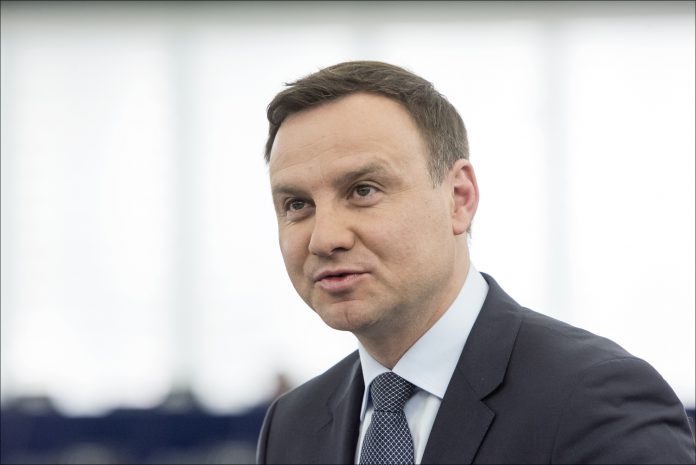Poland’s President Andrzej Duda called on the European Union institutions to stop “stigmatising, dividing and antagonising European nations”.
Speaking at a meeting with foreign ambassadors in Warsaw on January 12, Duda mentioned the centenary of Poland’s independence, the future of the European Union and global security.
In a major foreign policy speech, he said that “the debate about the future of the common Europe should also include a discussion concerning an opening towards new member states”.
Referring to the impending exit of Britain from the bloc, Duda said: “Given the fact that one country is leaving the EU, we should be ready for new states to join”.
As reported by Radio Poland, Duda also said “it is not acceptable that the European Union should be a community of a shrinking number of states or a community which should exclude some member states from the decision-making process”.
Duda vowed that “Poland will take consistent actions aimed at ensuring European unity without divisions into better and worse”.
Referring to this year’s centenary of Poland regaining independence, Duda said “an independent Poland is a valuable part of Central Europe, whereas a sovereign and affluent Central Europe is a valuable part of the common Europe and the world”.
He added that “Europe loses whenever it is subjected to the concert of powers or an external domination, but it wins peace and obtains proper conditions for economic development as long as it knows how to benefit from the richness of all its nations and states”.
He also said that “Europe is not a work of… contemporary politicians” and “whoever claims to have a monopoly on defining what Europe is supposed to be, without asking others about their opinions and taking their arguments into account, is a usurper of the European idea”.
Explaining his vision of Europe, Duda said it “is and should be strong with the will of its nations, whereas the community institutions should serve that will… If we reverse that hierarchy and place institutions above nations, we will distort the right order of things”.

